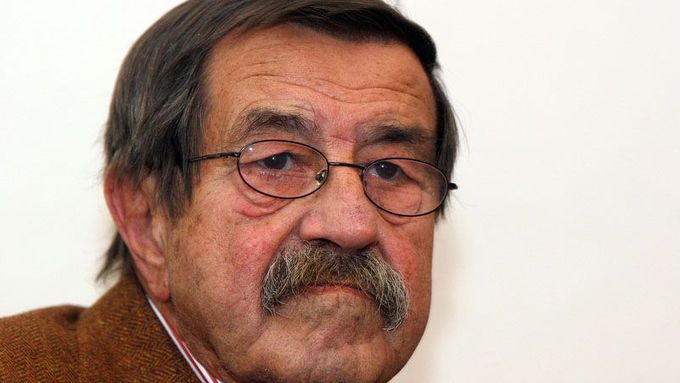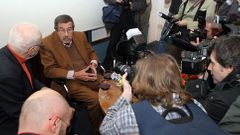Prague - It's like peeling the onion. That's how Günter Grass, a Nobel Prize winner for literature and one of the most famous living German authors, described the process of retrospecting. And that's how he called his recently published book of memoirs.
Last week, the author was reading from his book to the audience in Goethe Institute's building in Prague.
Turbulent times, secret past
In his text, the 80-year-old German narrated only a period of approximately thirty years that finishes with his breakthrough novel The Tin Drum being published in 1959.
Grass spent this period in the tumultuous place at the tumultuous time - his childhood took place in what was then "free city" of Danzig, a knotty inter-war autonomous entity, now Polish city of Gdańsk. As a young man approaching adulthood, he witnessed the general decay of the last months of war.
Hence, the book is about "the soldier" in Grass, rather than "the author".
For his reading in Prague, he had chosen two parts - first depicting his attendance in military prep-school in 1943, and second about him working as a miner in post-war Hannover.
"We had believed in victory till the very end," he admitted at the beginning. The general inclination of his generation to Nazism was, according to him, obvious. "We didn't even know anything else but Nazism," he said.
Weary of politics?
He first revealed the darker sides of his past in August 2006. The Prague reading, nonetheless, was far from scandalous.
The aged author presented himself above all as a witness of the "short twentieth century", now living a life of a vital senior enjoying his peaceful (and pretty secure) pension.
During the discussion that followed the reading, he reminded the audience of his social democratic beliefs. The writer praised the Prague Spring events of 1968 as a valuable attempt to create more just society.
When asked about the US plan to build bases of its antiballistic system in the Czech Republic and Poland, he called this initiative a useless provocation against Russia.
Generally, however, he wasn't eager to comment on politics. After all, that was one of the reasons of his last book's "premature" ending.






